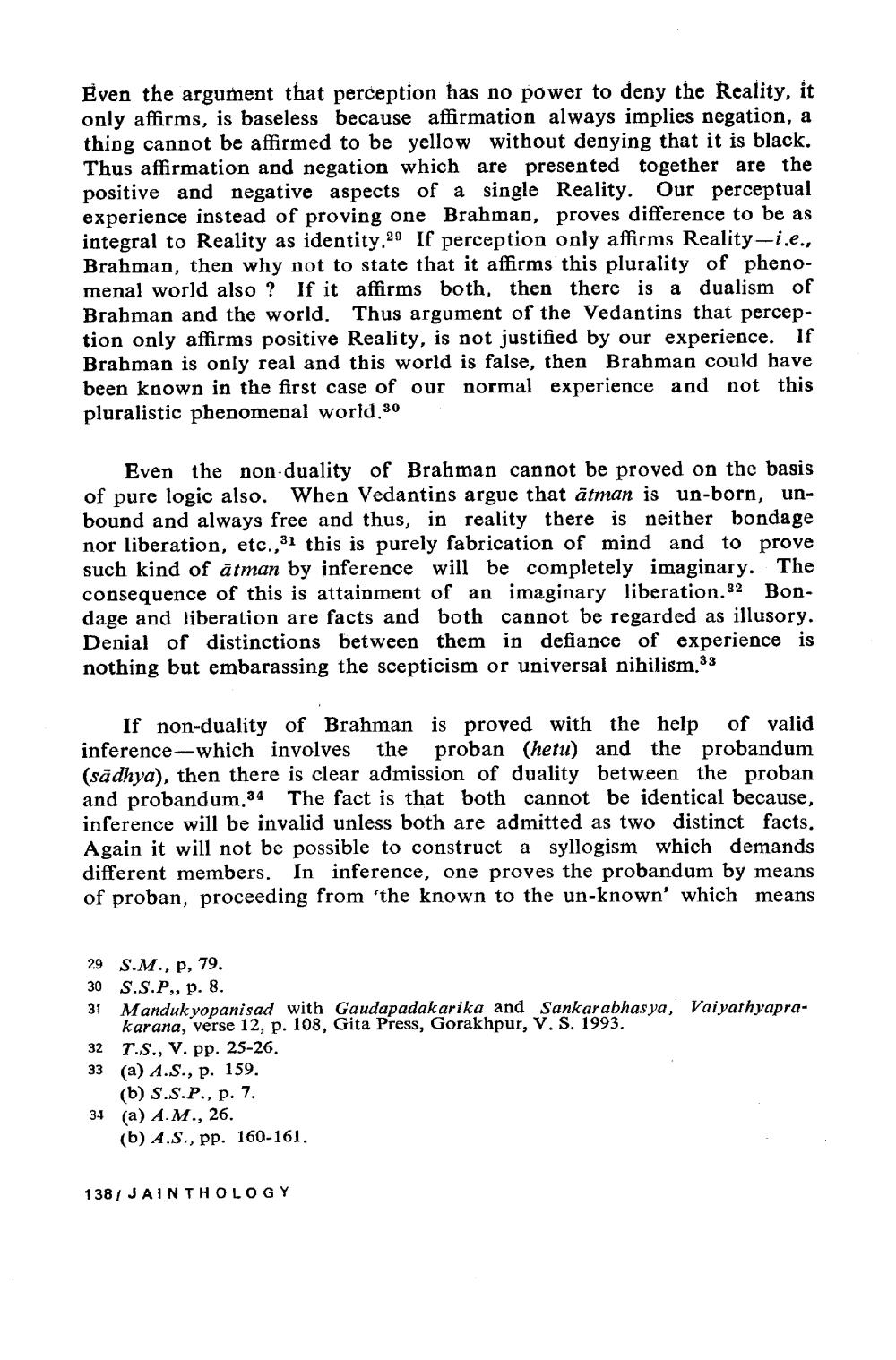________________
Even the argument that perception has no power to deny the Reality, it only affirms, is baseless because affirmation always implies negation, a thing cannot be affirmed to be yellow without denying that it is black. Thus affirmation and negation which are presented together are the positive and negative aspects of a single Reality. Our perceptual experience instead of proving one Brahman, proves difference to be as integral to Reality as identity.29 If perception only affirms Reality-i.e., Brahman, then why not to state that it affirms this plurality of phenomenal world also ? If it affirms both, then there is a dualism of Brahman and the world. Thus argument of the Vedantins that perception only affirms positive Reality, is not justified by our experience. If Brahman is only real and this world is false, then Brahman could have been known in the first case of our normal experience and not this pluralistic phenomenal world.30
Even the non-duality of Brahman cannot be proved on the basis of pure logic also. When Vedantins argue that ātman is un-born, unbound and always free and thus, in reality there is neither bondage nor liberation, etc.,31 this is purely fabrication of mind and to prove such kind of ātman by inference will be completely imaginary. The consequence of this is attainment of an imaginary liberation. 32 Bondage and liberation are facts and both cannot be regarded as illusory. Denial of distinctions between them in defiance of experience is nothing but embarassing the scepticism or universal nihilism.33
If non-duality of Brahman is proved with the help of valid inference-which involves the proban (hetu) and the probandum (sādhya), then there is clear admission of duality between the proban and probandum.34 The fact is that both cannot be identical because, inference will be invalid unless both are admitted as two distinct facts. Again it will not be possible to construct a syllogism which demands different members. In inference, one proves the probandum by means of proban, proceeding from 'the known to the un-known' which
means
29 S.M., p, 79.
30 S.S.P,, p. 8.
31
Mandukyopanisad with Gaudapadakarika and Sankarabhasya, Vaiyathyaprakarana, verse 12, p. 108, Gita Press, Gorakhpur, V. S. 1993.
T.S., V. pp. 25-26.
32
33 (a) A.S., p. 159.
(b) S.S.P., p. 7.
34 (a) A.M., 26.
(b) A.S., pp. 160-161.
138/ JAINTHOLOGY




